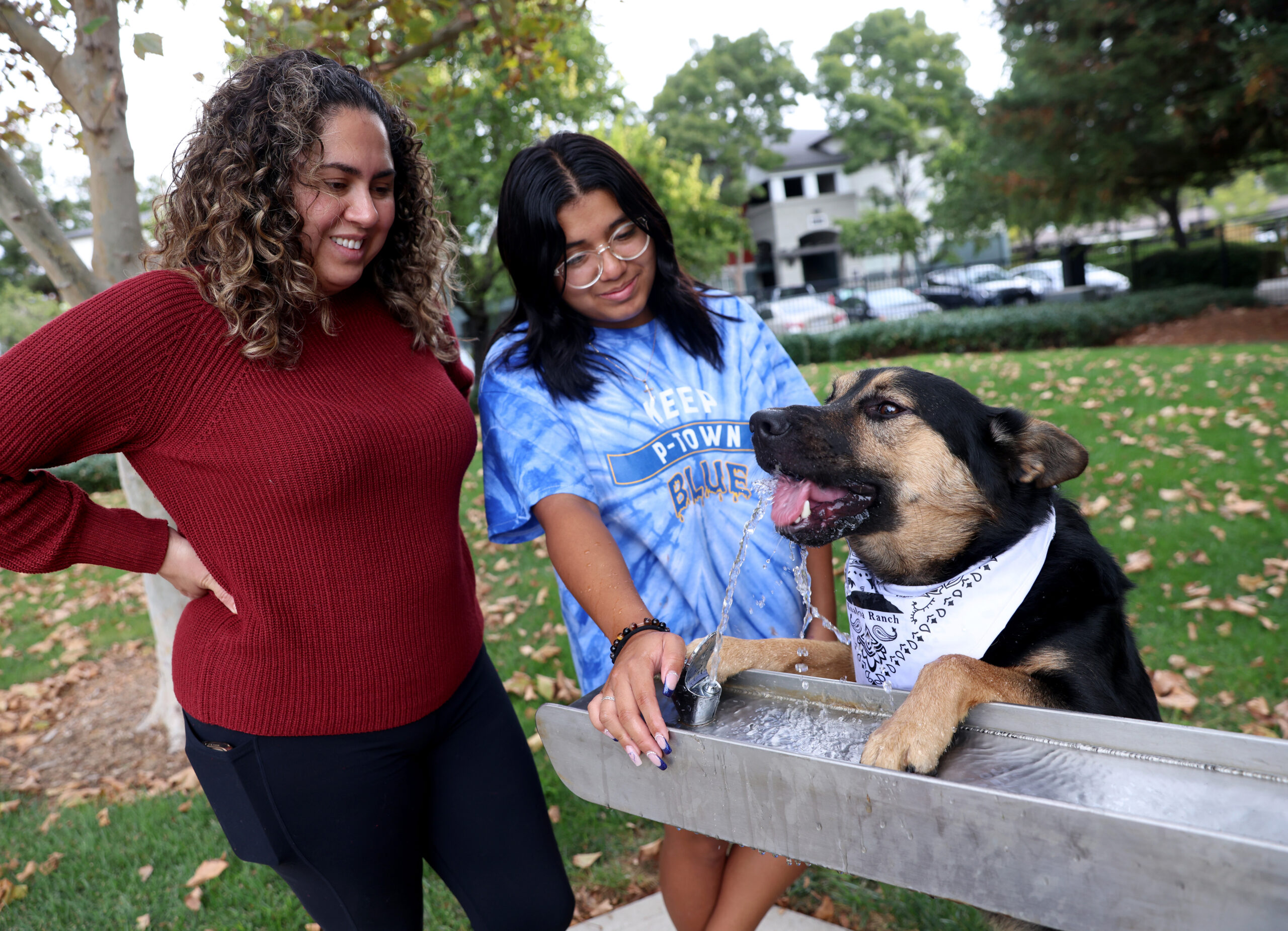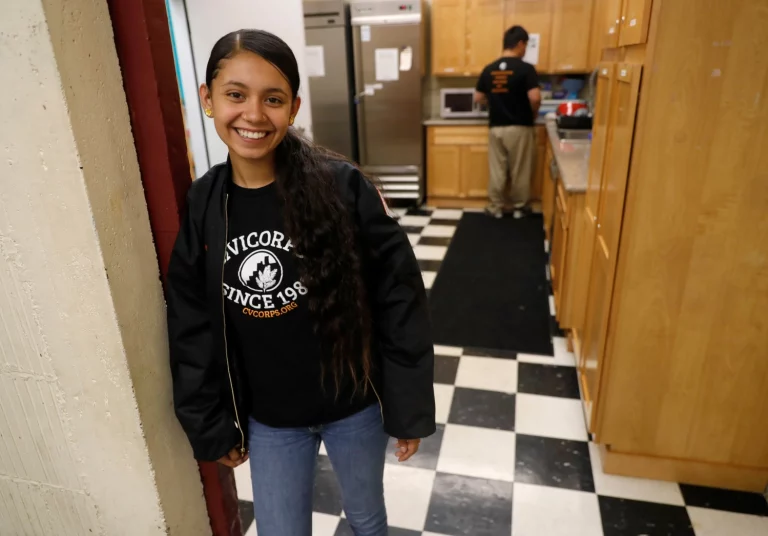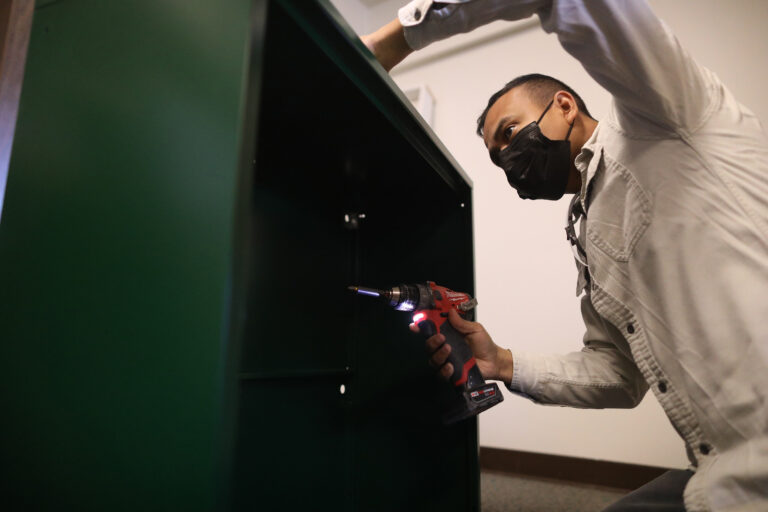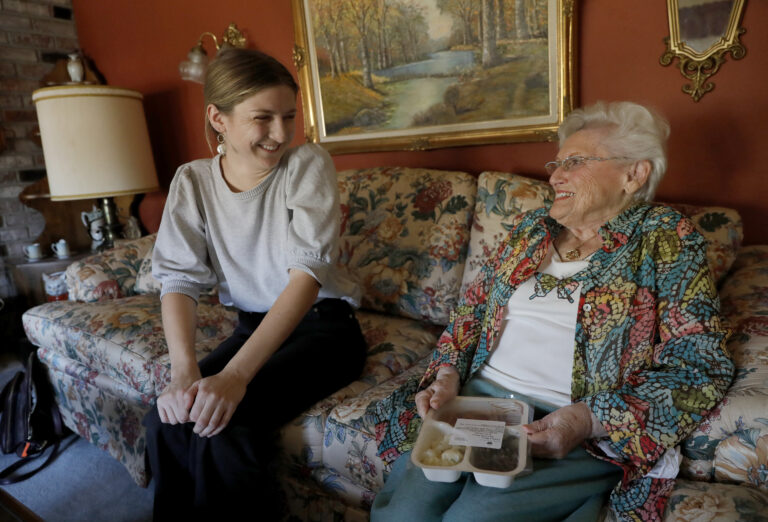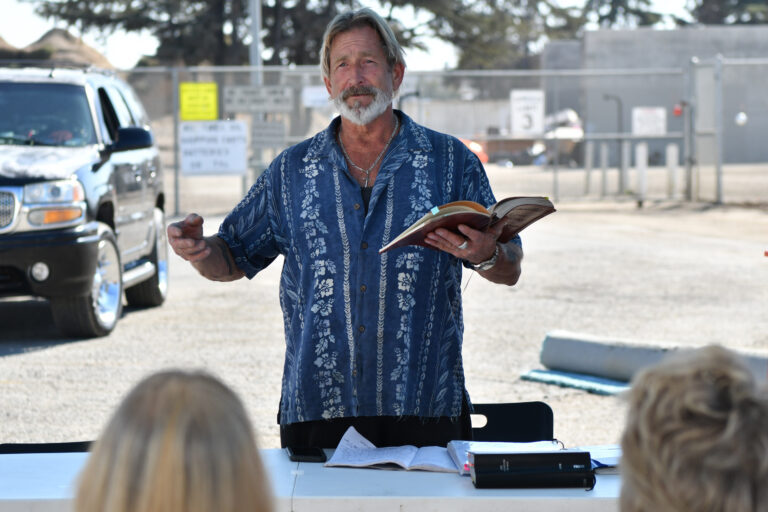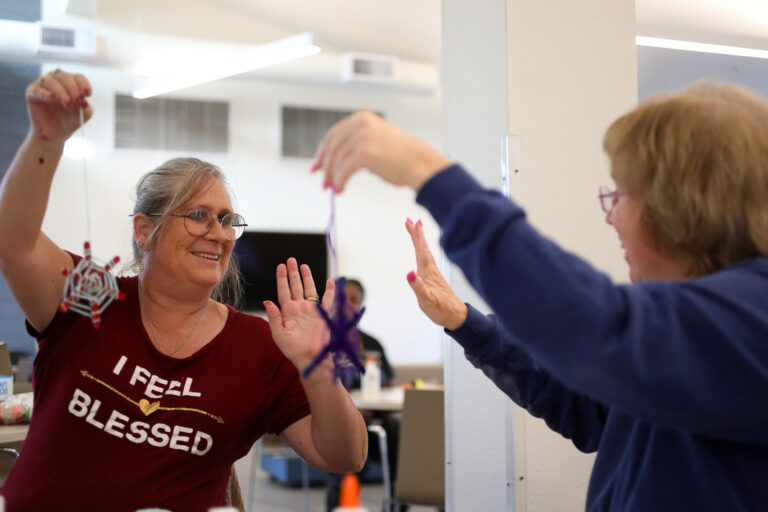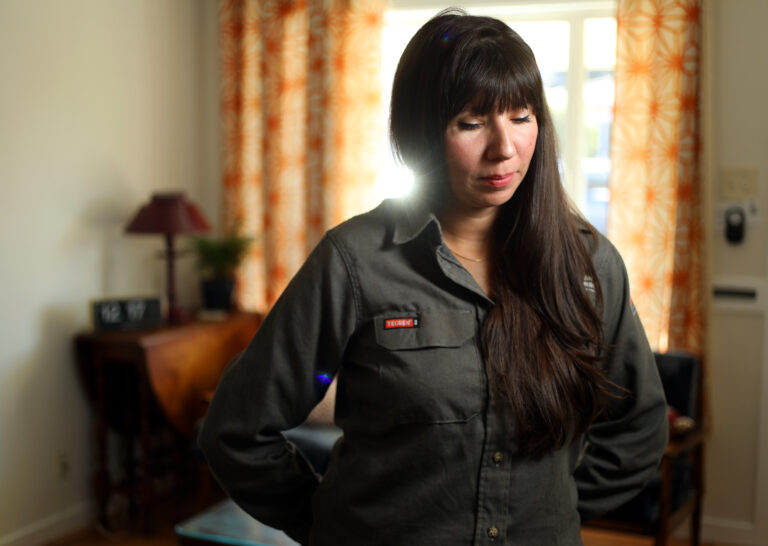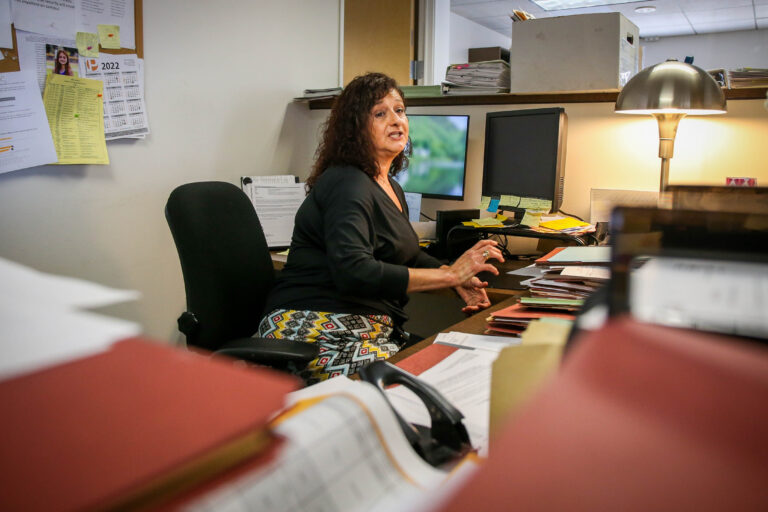When Deysi Gonzalez found a funny-looking German Shepherd with short, stumpy legs in her neighborhood park in May, she didn’t expect he would help turn her life around.
A mother of three, Gonzalez felt like her life had become a cycle of cleaning and cooking. She spent most of her time at her apartment in Pleasanton. The purpose she had felt in her youth seemed to have faded away, and she realized she was falling into a deep depression.
“Sometimes I didn’t want to get up from bed in the morning,” Gonzalez said. “I felt so useless.”
That day at the park in May, Gonzalez realized the friendly dog was alone. Eventually, the dog followed Gonzalez home, where she fed him a bowl of food—then two, then four. Gonzalez contacted Animal Control to see if the dog was microchipped and put up posters around town, searching for the dog’s owners. Eventually, it became clear that the dog, who they began calling Max, didn’t have one.

Gonzalez’s kids fell in love with Max immediately. He got along well with their current dog. Even her husband, who said the apartment was far too small for another animal, became attached to the loving, stumpy little creature, seemingly some cross between a German shepherd and Chihuahua.
But there was one problem – Gonzalez was short on cash, and couldn’t afford to have Max neutered. She definitely couldn’t afford a litter of puppies on her hands. And so she found herself in a situation that many low-income families face, forced to make a financial decision that could push them to give up pets they have grown to love.
It’s exactly the gap that Paws In Need, a Tri-Valley based nonprofit, aims to fill.
“What we wanted to do was address a public need, people who are financially challenged,” said Leslie Silberman, a board member at the nonprofit. “People who have to decide if they have to euthanize the animal because they can’t spay it, can’t neuter it, can’t get some emergency treatment.”

Paws In Need has served thousands of animals over its 10-year existence — Max being one of them. Thanks to a series of donations and grants, the organization is able to provide logistical support, transportation, and financial assistance to help families get their animal the procedure it needs. For Gonzalez, the organization was able to find a veterinarian and get both of her dogs fixed. She didn’t spend a dollar.
The program is the only of its kind in the Bay Area. Beyond spaying and neutering, they also help families pay low-cost or no-cost emergency surgeries, and care for the feral cat population. According to SPCA LA, 6-8 million cats and dogs enter shelters annually, half of which are euthanized. Only approximately 70% of dogs that are adopted are neutered or spayed, feeding the overpopulation problem. The number of puppies and kittens being born far outstrips human population growth. In California, as recently as 2016, California was euthanizing approximately 160,000 dogs and cats every year.

Paws In Need is is hoping to raise $5,000 through the East Bay Times’ annual Share the Spirit program, which provides relief, hope and opportunities for East Bay residents by helping raise money for nonprofit programs in Alameda and Contra Costa counties. The money will be used to treat companion animals belonging to individuals experiencing financial hardship, keeping families and their beloved pets together. These funds will allow the organization to reach over 150 animals, and prevent overpopulation in overcrowded animal shelters.
According to the organization, many people can’t afford the cost of spaying or neutering, which can run to hundreds of dollars. Paws In Need aims to resolve that, and every month they serve dozens of clients.
But the program, which recently celebrated its 10-year anniversary, is also facing new challenges in a rapidly changing animal care environment. Vets and animal hospitals are increasingly being bought up by large corporations that decline to partner with small nonprofits like Paws In Need. Whereas the group previously had relationships with a dozen mom-and-pop vets in the region, they’re now down to only two. These locally owned veterinarians also provided a reduced, non-profit rate for procedures, which larger corporations don’t offer.

Paws In Need, which is entirely volunteer run, has never had its own facilities, prefering to minimize operating costs and stay “lean and mean”, as Silberman put it. In the past, that has allowed them to put 90% of their funding toward helping the animals. Now, it’s unclear if that strategy will remain sustainable.
“It’s easy to get discouraged,” Silberman said. “We have to go with the new trend and try to make it as least stressful for us as possible, but everything takes money.”

In January, Assemblymember Ash Kalra, D-San Jose, introduced a bill in the California State legislature that would establish a fund to provide grants for low-to-no-cost spay and neuter programs to certain organizations. As of March, the bill had stalled in committee.
For Gonzalez, the service Paws in Needs provides has been literally life-changing. With Max around, Gonzalez started going on walks every morning, taking her dogs to a field to run around and play. His enthusiasm and joy for life proved infectious. She felt more relaxed, more driven, and started picking up shifts at a nearby restaurant.
And Max, in just 7 months, has become a core part of the Gonzalez household.
“People say he’s lucky, but we’re lucky to have him in our family,” Gonzalez said.
